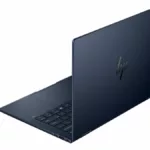Mobile device users are expected to download a whopping 36 billion apps in 2012.
Unsurprisingly, Android and iOS apps will comprise 83% of the software downloads, while only 2% is likely to be attributed to Windows Phone.

Nevertheless, ABI Research analyst Lim Shiyang remains cautiously optimistic about the future of Microsoft’s rapidly evolving Windows Phone platform.
“Although Windows Phone lags behind RIM’s BlackBerry and even Nokia’s Symbian, we shouldn’t ignore the fact that the two percent that we forecast for 2012 would be twice the share the platform achieved last year,” he explained.
“[Yes], Microsoft is gaining momentum, but its starting point is frustratingly low. Contrary to popular belief, this isn’t really a chicken-and-egg problem of low device sales holding back the app business and the slow app business holding back the device sales. It’s more complicated than that.”
According to Shiyang, there are four primary factors undermining Windows Phone’s app growth. First, says the analyst, the small device market share is the most obvious drag. Second, Windows Marketplace’s global roll-out has taken a long time, further limiting the number of potential customers.
Third, Microsoft has been quite slow to enable in-app purchasing, meaning that most of the quality apps remain behind an upfront paywall. And fourth, there have been no tablets built on the platform. As such, says Shiyang, any advancement on the above-mentioned fronts will have a positive impact.
Meanwhile, ABI analyst Aapo Markkanen emphasized that most mobile devs find Windows Phone to be a relatively easy platform to work with. He also noted the mobile operating system could gain significant momentum when the first Windows 8 tablets hit the market.
“One message we hear from many developers is that, purely technically speaking, Windows Phone is actually a rather appealing platform. And if it turns out to be a platform for relatively high-end devices, avoiding the fragmentation pitfalls of Android, it won’t even need to achieve a remarkably large market share to attract a vibrant app scene.
“The arrival of the first Windows 8 tablets, as well as Windows Phone’s upgrade to the Apollo iteration, should also give it a boost, since developers can reuse their code to launch on various screen sizes,” he added.






